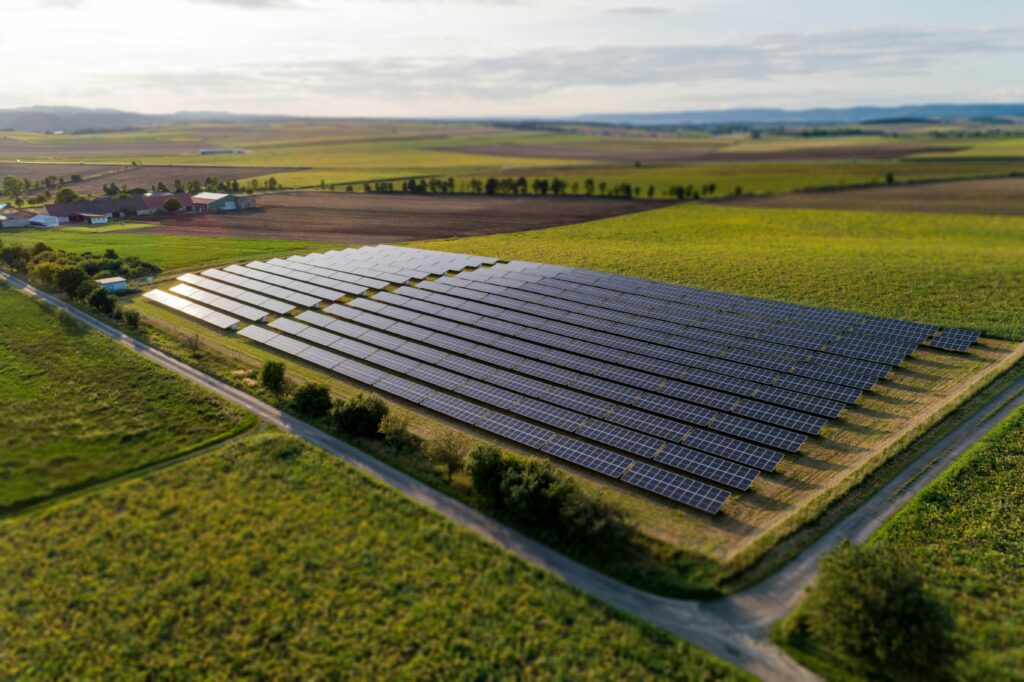National Geographic takes a break from beating the climate drum to warn that “Europe’s butterflies are vanishing as small farms disappear”. And we’re glad to see that there’s an environmental issue other than climate change. We’re less glad to hear that apparently a lot of butterflies are very well adapted to grasslands and so the conversion of small farms to urbanization or reversion to forest leaves many species finding it hard to cope. And a bit surprised by the part about forests. Normally you’d think pristine nature was good. But as National Geographic allows, “counterintuitively, too little human intervention harms these grassland ecosystems.” Sometimes we don’t want to let nature take its course entirely. Or spend so much time cussing CO2 that we have no time for habitat.
The piece didn’t totally ignore climate, of course. “Aside from being biodiversity hotspots, grasslands and savannahs store tremendous amounts of carbon—some 660 billion metric tons of it globally.” Leading to some potential alarmist-on-alarmist hair-pulling: “Lately a new threat to grasslands has emerged: tree-planting campaigns. Two years ago [Texas A&M Assistant Professor and Faculty Chair of Society for Ecological Restoration Joseph] Veldman was one of many critics of a widely-covered paper that called tree planting the most effective way to mitigate climate change and claimed a trillion trees could be planted on Earth. The research was ‘inaccurate and misleading,’ according to Veldman, and the tree-planting effort it implied would have ‘gravely threatened’ grasslands and savannahs.” And of course eventually they find someone to say “It was once just habitat loss, but now it’s so many things: Invasive plants, climate change, chemicals…even if you do everything right, there can be a factor like climate change that just changes everything.”
Yup, it’s a lost cause, and everything is a crisis. Hence a press release from the Canadian Parks and Wilderness Society notes “The Canadian Parks and Wilderness Society (CPAWS) welcomes the federal government’s commitment in today’s Speech from the Throne to protect our land and ocean through strengthened partnerships with Indigenous Peoples and respecting traditional knowledge, reaffirming Canada’s strong commitment to address the interconnected crises of climate change and biodiversity loss.”
Still, if we can spare a thought for biodiversity loss as an issue in its own right, we and the planet will be better for it. To our astonishment, Fisheries and Oceans Canada managed to do so in a press release: “Successful outcomes for Canada at the International Commission for the Conservation of Atlantic Tunas meeting”. The insertion of “successful” before a Canadian announcement about a meeting ending is so routine as to be uninformative. But the text on protecting the “shortfin mako shark” and also the “Western Atlantic bluefin tuna” managed not to mention climate at all.
When we manage to focus on practical issues instead of getting all cosmic and pointless, the results can be inspiring. We’re not sure what to make of the story “On the Great Pacific Garbage Patch, scientists find a surprise: … Scientists documented more than 40 coastal species clinging to plastic trash, including mussels, barnacles and shrimp-like amphipods.” But consider that the Washington Post recently reported that “London’s River Thames, now home to sharks, seals and sea horses, is no longer ‘biologically dead’”. It’s not an entirely new story; the river was an open sewer back in Sir Joseph Bazalgette’s day and as the Post observes, “Some 60 years ago, parts of the River Thames were declared biologically dead” due primarily to very low oxygen levels. However better sewage treatment and other measures including better protection for wetlands rather than aggressive draining of swamps mean that parts of it are “home to myriad wildlife as diverse as London itself”.
The story adds that “it has one of the higher concentrations of microplastics in the world” and it might be worth going after them even before reaching Net Zero. Although it also said “The report also highlighted many challenges the Thames faces, including rising water temperatures and sea levels due to climate change. For instance, summer temperatures in parts of the river have increased an average of 0.19 degrees Celsius (0.34 degrees Fahrenheit) each year since 2007, researchers found. Even slight alterations in seasonal heat may upset the river’s ecosystem and erode living habitats.”
Oh really? Would that be the Thames that routinely froze during the Little Ice Age without becoming biologically dead? And the BBC warned in context of COP26 that the Thames Flood Barrier was being used more and more as the angry seas surged toward London although, technically, the chart of closures shows a spike nearly a decade ago now but no trend. And, the BBC admits, the barrier was built because of disastrous floods in 1953 that apparently didn’t get the memo about global heating and therefore bad weather being in the future. Still, you can’t have everything.
We saved the river because we looked down from the skies. It might be worth trying again.



On a BBC documentary series, Michael Portillo asked the question "Was the Thames barrier being used more often due to climate change and sea level rise?" The answer he got was to his surprise was "No".
Apparently after research from geology scientists, London is in fact sinking due to the glacial rebound effect in Northern Britain. This will cause relatively higher tides in the future for which the Barrier was designed and built for.
This fact has obviously been completely ignored by the BBC in order to protect their climate change narrative.
“Some 60 years ago, parts of the River Thames were declared biologically dead”. I can testify to this, since I lived near the Thames at that time. The river was patrolled by police launches and if you had the misfortune to fall in, or Heaven forbid, try to swim in it, the chances were quite good that you would be hauled out of the water and given an involuntary stay in an isolation hospital for a couple of weeks while they waited to see what sort of interesting disease you developed.
Pollution is easy to deal with. All you need is money, lots and lots of money. Societies aspiring to join the middle classes have pollution. Once your society joins the middle classes, pollution tends to disappear.
So how come Veldman’s paper is never referenced when somebody wants to scrape part of the Alberta prairie flat and cover it with solar panels? Isn’t that bad too?